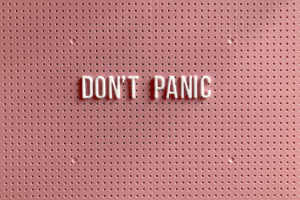The employment contract in France can be tricky to understand. There are a lot of footnotes and impenetrable jargon. But don’t worry, reality is not as confusing as it seems.
First of all, most contracts that you’ll sign as an employee will be legitimate. It may not seem this way because of the many paragraphs and/or the wording is strange, but they are. Labour law in France is one of the most complex in the world, and most employers will rely on lawyers to draft their own versions.
Second, even though your contract is 15 pages long, there are only a few elements that need to be checked thoroughly. The rest is mainly French self-satisfaction in writing long and complex sentences (we don’t have writers like Proust for no reason…).
Little disclaimer : we are not law professionals and the advice we give is not exhaustive. If any doubts or questions remain after reading this article, either contact us or a labour law professional.
Must the employment contract be in written form on paper ?
There is a distinction in France between permanent contracts (CDI – Contrat à durée indéterminée) and temporary contracts for part-time positions (CDD – Contrats à durée déterminée).
The CDI doesn’t always have to be in written form on paper, but the vast majority of companies will have you sign one. You can always request your employer to provide you with a written contract.
The CDD always has to be in written form on paper. This also applies for fixed-term contracts (like temporary positions), or apprenticeship contracts.
A written contract is always more protective of the worker than a mere verbal agreement and it’s pretty standard to have a written contract in France.
Can I start working without a contract ?
In France, you can start working without a contract but you must make sure that you get one as soon as you can. A contract is always more protective than a verbal agreement.
Some companies may send a work confirmation letter (lettre d’engagement) in which they declare their intention to hire you. This is in no way a contract !
What should be included in the employment contract?
A permanent contract must specify:
- The identities and addresses of all parties.
- The job title and professional qualifications.
- The place of work.
- Working hours.
- Remuneration (salary and bonuses).
- Paid leave.
- Duration of the trial period.
- Notice periods in the event of contract termination.
- A non-compete or mobility clause, if applicable.
Can I request a contract in another language ?
CDI contracts must be drafted in French.
You can always request a bilingual version or a copy translated into your own language for information purposes.
The French version of the employment contract will remain the reference version.
What is a trial period and how long can it be ?
In France, before the definitive hire, you may have to work a trial period. During this trial period the employer can fire you at any time, but you can also leave at any time, without any notice period.
Trial periods are not mandatory. They are at the employer’s discretion. The duration of the trial period varies according to your rank in the company :
- up to 2 months for the workers (ouvriers et employés)
- up to 3 months for technicians (agents de maîtrise ou techniciens)
- up to 4 months for a cadre
Your rank (worker, technician, cadre) is usually specified in your contract.
Trial periods can be renewed once.
How can I change my contract ?
Bear in mind that two changes are possible :
- “Changes to the conditions of employment” which the employer can decide unilaterally (hours, notice period, etc.)
- “Changes of the contract of employment” which requires the employee’s agreement and which relates to:
- the methods of payment or the amount thereof
- the working hours
- the place of work
- the employee’s job title,
- any other information considered necessary by the parties.
How to end an employment contract ?
The CDD ends once its term is up.
The CDI can be terminated by the employer or the employee.
Bear in mind that in France, there are multiple ways to end a work contract. Here is the article about getting fired and quitting.
When it’s on the company/employer initiative, it’s then a termination (licenciement in french). You can also instigate the end of your work contract, then it’ll be either a resignation or a mutually agreed termination
Tips
- Never write and send a blank resignation letter to your employer
- Always check that your rank and remuneration align => Your working contract shows your rank and in France, collective agreements set a minimum amount for salary based on that rank.
- You cannot have more than 2 consecutive CDD with the same company for the same position. If they hire you a third time in this situation in a CDD, you have to be offered a CDI.


